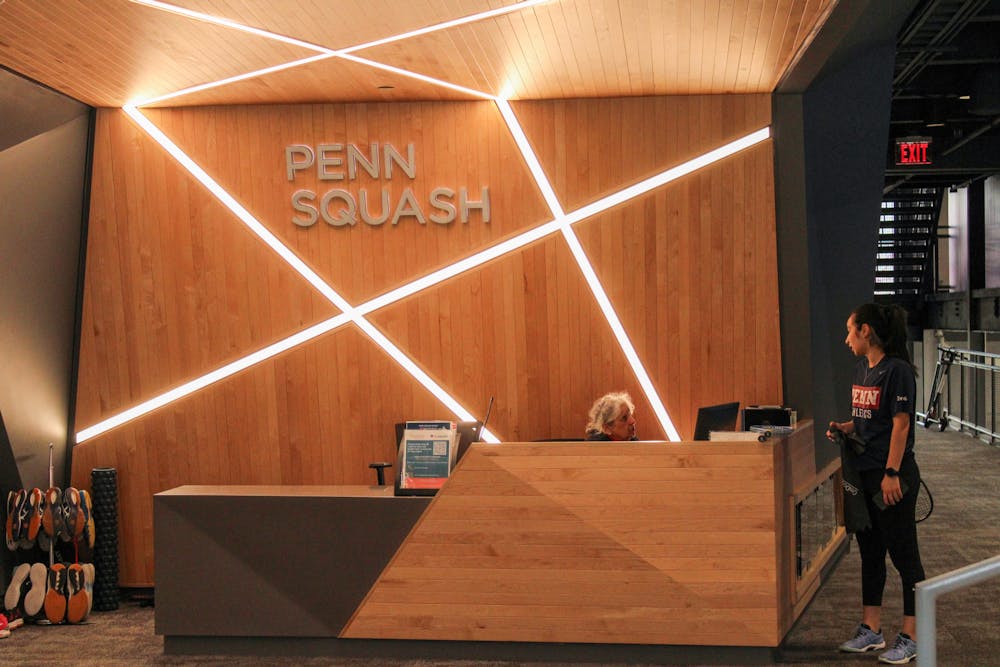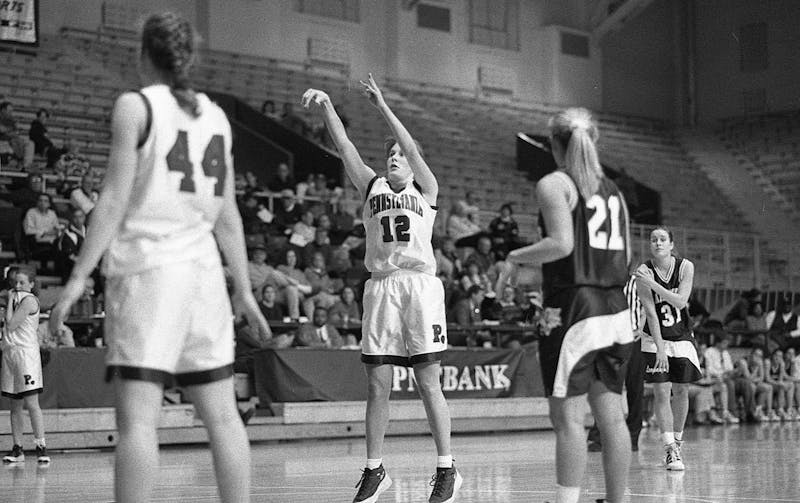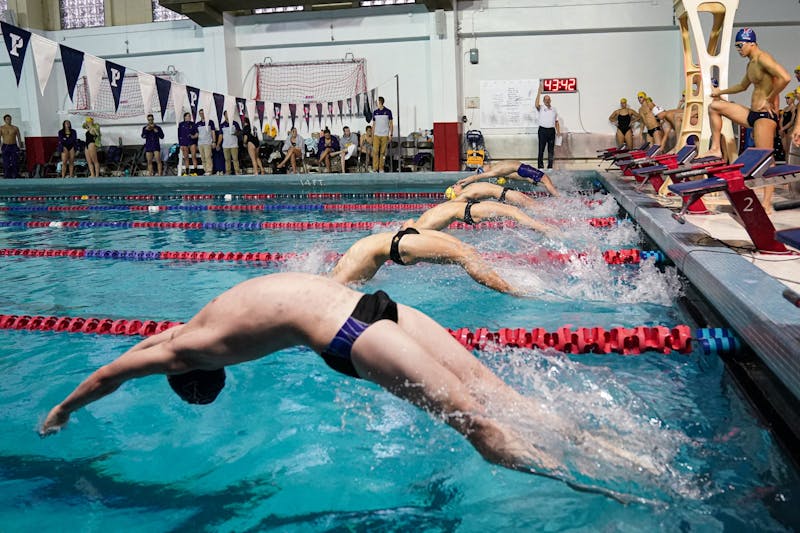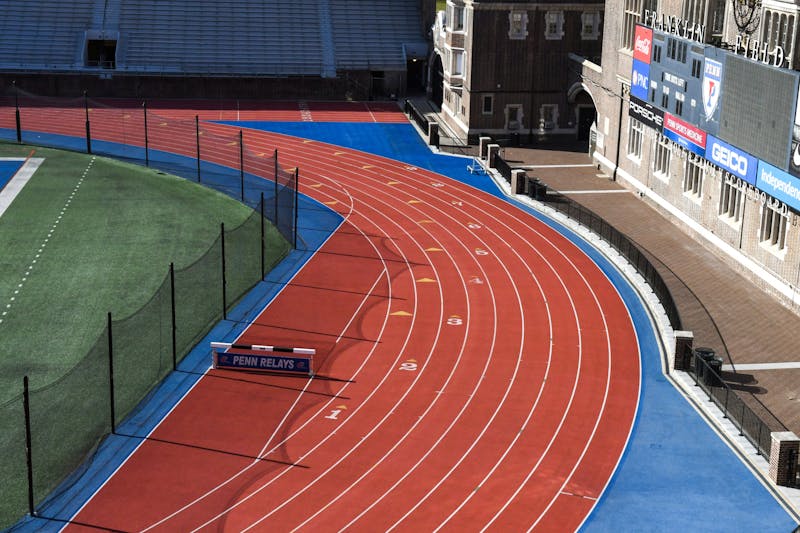
Penn squash facilities on April 14.
Credit: Cynthia DongPhiladelphia is home to many iconic professional sports venues: Citizens Bank Park, Lincoln Financial Field, and the Wells Fargo Center, to list a few. But what many people may not know is that Penn has played an integral role in contributing to the city’s storied sports history.
Most famously, Penn is home to the Palestra, the University’s historic basketball arena that is often considered the “Cathedral of College Basketball.” Furthermore, Franklin Field has been the host of a range of events, including everything from the Penn Relays to the Philadelphia Eagles.
A sports team’s legacy is often defined by the number of banners, championships, and hardware it has brought home, but behind the scenes of this success lies the hours of work that athletes put in to ensure that their bodies are in the best physical condition possible. It is no secret that facilities are crucial in helping maintain an environment that meets the needs of elite athletes. This could not be truer for one particular sport that is hitting its pinnacle at Penn — squash.
Originally built in 1958, both Penn men’s and women’s squash programs have called the Penn Squash Center home for over half a century. Recently, the center underwent an extensive renovation that was finished at the end of 2019. The newly designed facility features 12 state-of-the-art international courts, two of which are glass-wall championship courts. With the renovation, there are now improved seating and viewing areas, as well offices and team rooms for coaches and student-athletes alike. Additionally, improved LED lighting, modernized scoring systems, and video capabilities allow for streaming on all courts.
“We raised close to 19 million dollars to build [the facility],” coach Gilly Lane said. “We’ve been really lucky with fantastic alums and people that support the program, and just feel incredibly honored to have the community that we have in Penn Athletics and Penn Squash.”
Penn is perhaps not only the site of the best squash facility in the Ivy League but also in the nation. On a broader scale, Philadelphia is arguably the epicenter of the squash world. This is reflected by the fact that two of the last three sites for the Division 1 National Championships for squash have been held in Philadelphia.
In 2022, the Penn Squash Center hosted the College Squash Association National Collegiate Team Championships. Just down the street, the Arlen Specter US Squash Center on Drexel’s campus hosted the College Squash Association National Collegiate Club team championships that same year. Fast forward to 2024, the Arlen Specter Center held the College Squash Association National Collegiate Team Championships, National College Individual Championships, and the Intercollegiate Doubles Championship. In fact, the Arlen Specter Center is the location of the United States Squash’s National training center and headquarters.
“With the building of the Arlen Specter Center … there’s 40 squash courts in a two-and-a-half block radius,” Lane said. “We’ve been able to hold national championships at the Penn Squash Center [as well as] host big-time junior events. [Philly] has really become a destination because of our court, [which is] a place where student-athletes call their second home.”
With a renowned facility, the Quakers have taken full advantage of not only all the resources that the center has provided, but also the home-court advantage that comes along with it. As with any sport, playing at home offers a crucial advantage for teams, as they are more comfortable and used to the venue. The Red and Blue nearly have a perfect record at home since the inception of the newly renovated Penn Squash Center in 2019, underscoring their stellar success on familiar hardwood.
“If I’m not mistaken, the only loss that the men have is in the National Final in 2022,” Lane said. “We haven’t lost a home regular season match at the new center since it was built on the men’s side. It’s definitely been a great home-court advantage and we love playing at home.”
Although the saying goes that there is “always room for improvement,” Lane doesn’t believe that this holds true for the Penn Squash Center. With practices five days a week, the center has become a home away from home for student-athletes who use the space not only to train and compete but also to do homework, relax, and hang out.
“We had a world-class architecture firm come in and design it … we love everything about the new facility … [and] we love the environment from a fan’s standpoint,” Lane said. “We’re really grateful to call Penn Squash Center our home.”
After winning its first national championship this year, Penn has cemented itself in the upper echelon of squash programs in the country. Unequivocally, Penn has also demonstrated its commitment to continue to grow the squash program and its success through funding and support. To meet the many needs of its athletes, a world-class facility is necessary to house world-class athletes. A team is only as strong as its weakest link. But maybe, equally as valid is that a team is only as good as its facility.
The Daily Pennsylvanian is an independent, student-run newspaper. Please consider making a donation to support the coverage that shapes the University. Your generosity ensures a future of strong journalism at Penn.
Donate












